
 Flash News
Flash News
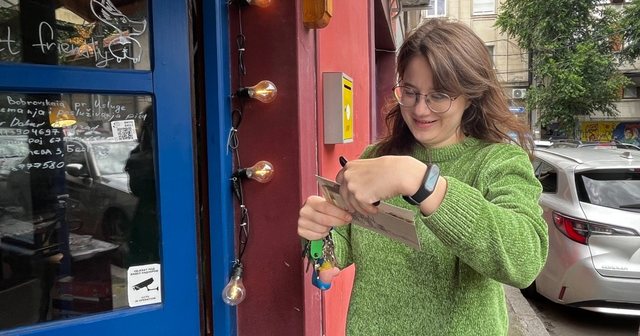
"I want to survive." This is how Ana, a Russian citizen, begins her story about her relocation and life in Serbia. She moved to Belgrade in July 2023 and after a month decided to open a business - something she says she had dreamed of until then.
"I realized that I had to do something that I love and really love. I have always wanted to open a library. And I decided to do this in Serbia," Ana tells Radio Free Europe.
She rented a space in the Vračar municipality of Belgrade and opened a place where people “read books and socialize, while eating and drinking.” Ana used to work in the information technology industry, and today her café is filled with bookshelves.
"The library is small, but the works have been selected with love. They are the books I love," she says. Ana adds that she is pleased with the way the environment has received her.
"It's fantastic. I have many friends among Serbs. Many neighbors with whom I have excellent relations," she says.
Ana is one of tens of thousands of Russian citizens who have gone to Serbia since Russia launched its full-scale invasion of Ukraine in February 2022. For some, Serbia has been only a temporary destination, but others have remained there.
Its library café is a meeting place for local residents, but also for numerous members of the Russian community in Belgrade.
The books on its shelves are in Russian, English and Serbian, but there are also novels by Serbian authors translated into Russian.
"This is my desire, to contribute to the progress of the Russian community, but also of the community in which we live. To improve communication and mutual connection," says Ana, adding that she wants to make her space a "home for everyone."
"Many of those who come here tell me that they feel at home. For now, that's enough for me," says Ana.
Official data shows that every second foreigner with a residence permit in Serbia comes from Russia. Of the approximately 100,000 foreigners legally residing in Serbia, more than 53,000 are Russian, according to data from the Republican Institute of Statistics of Serbia (RZS).
This is the first time that the number of foreigners with regular residence in Serbia has been detailed in statistics. The research was conducted by the RZS in cooperation with the Serbian Ministry of Internal Affairs and the results were presented in April.
Demographer Vladimir Nikitovic from the Institute of Social Sciences in Belgrade tells Radio Free Europe that this is a significant number of people and that their arrival is good news for Serbia.
"... because in Serbia we still have a negative migration balance - when we compare how many people come and how many leave, regardless of whether they are our citizens or foreigners. So, the data is positive in a demographic sense," says Nikitović.
More than half of foreigners in Serbia are Russians
Official data shows that the average age of those who have emigrated to Serbia is 32.6 years old, which is lower than the national average. Nikitović says this could “improve” Serbia's statistics.
"Our average is now approximately 43-44 years old. In this context, this is a positive effect and it would be good if such patterns continued," Nikitović emphasizes.
Young and educated
According to the data, which refer to 2023, Russian citizens living in Serbia are on average 30 years old. The majority are men, 54.4 percent, while women make up 45.6 percent. About 83 percent of them live in the central municipalities of Belgrade and Novi Sad.
"They have chosen the environments that they believe can offer them the most. On the other hand, it could also be an opportunity for those environments - in a way," believes demographer Nikitović.
In terms of demographics, he says, it is good for local communities when a population that is on average more educated than the general population moves in - as is the case with Russian citizens.
"They also have a portfolio of skills that this community lacks, because it is mainly a population that comes from the more urban parts of Russia - whose level of development is often above the European Union average," explains Nikitovich.
"And now, it practically depends on our society how it will use this impulse," he adds.
Is life expensive in Serbia?
"Life is expensive in Belgrade. I pay 750 euros for the apartment, that's a lot! It's too expensive. The market is expensive," says Ana.
Since the beginning of the invasion of Ukraine and the arrival of a large number of Russians in Serbia, rising prices have become one of the daily topics and concerns of Serbian residents.
Nikitovic says it would be "unfair to blame the Russian population."
"It was not directly caused by the arrival of the Russian population. But the momentum was used to increase prices for various reasons - not just for housing, but for all services," he believes.
"It seems that this wave [of price increases] has passed," he says, adding that such migrations accelerate the urbanization process.
"Look at Belgrade today, which is a much more metropolitan city than it was just seven or eight years ago. The Russians contributed to that, but also other migrations that are happening and that we are aware of even without these statistical data," he says.
For Ana, opening a business in Serbia was also a challenge.
"I still can't understand the tax policy in Serbia... It's really hard to pay all these taxes. We don't have much income, so we work alone," says Ana, who works with a friend of hers.
She adds that the current situation is such that it does not offer material fulfillment, but the personal one is great, according to her.
"That's how it is at the moment, we're trying to fix it. I don't know how, but hopefully we will," she adds.
The turning point after the start of the war in Ukraine
Serbia has not always been an attractive destination for Russian immigrants. The turning point came in March 2022, after Russia launched a full-scale invasion of Ukraine.
At that time, the first wave of registered arrivals was recorded in Serbia - where Russian citizens can still enter without visas, unlike most other European countries.
Some have gone there because they have been unable to continue their businesses in their home country. This is due to Western sanctions against Moscow, which Belgrade has not joined. Others, meanwhile, have left Russia because of disagreement with the war or fear of military mobilization.
Since then, hundreds of thousands of Russian citizens have entered Serbia, but not all have stayed. For those who decide to stay, a residence permit is required. In 2022, more than 19,000 Russians received them.
As the war continues into 2023, more Russian citizens have received residence permits in Serbia - almost 23,000. The scale of the change is best seen in comparison to previous years.
During 2012, fewer than 500 Russian citizens received residence permits in Serbia, meaning that the number of Russian immigrants has increased almost 47 times in the meantime. Ana says she wants a Serbian passport, but that her motive is not freedom of movement.
"I want a Serbian passport because I want to live here. It's not about free travel or visa-free stay," she said.
Do Russians plan to stay in Serbia?
In 2023, over 230 babies were born in Serbia to parents with foreign citizenship. More than half of these children have parents who are Russian citizens.
Although he believes this is a kind of indicator that Russian citizens are not only staying longer in Serbia, but also starting families there, demographer Nikitovic says it is difficult to assess their intentions regarding permanent residence in Serbia.
"... especially considering the situation [in Russia]. It is known that the longer you stay somewhere, the greater the chances of staying there," he adds.
According to him, demographic practice shows that, on average after seven years, the chances of staying somewhere increase rapidly.
"Closing the doors" to Putin's opponents
Although Belgrade and Moscow traditionally maintain close relations and the Serbian public is dominated by the narrative of "brotherly nations", this country has shown a slightly different face to some Russian citizens, shortening their hospitality.
What they have in common is their opposition to the invasion of Ukraine and the policies of Russian President Vladimir Putin.
Thus, in 2023, anti-war activists Vladimir Volohonski and Yevgeni Irzhanski had their requests to extend their stay in Serbia rejected, due to, as it was said, "security concerns."
A similar message was received by anti-war activist Ilya Zernov a few months later. Border police did not allow him to enter Serbia, even though he had arrived there from Germany to attend a trial for an attack on him that had occurred earlier in Belgrade.
This group also includes the story of Elena Koposova, whose application for permanent residence has been repeatedly rejected by the Serbian Ministry of Interior. She has been living in Serbia with her husband and children for five years.
The justification cites "security reasons", but Koposova believes the real reason is related to signing a public letter against Russia's aggression in Ukraine.
Serbia is one of the few countries in Europe that has not imposed sanctions against Russia due to its aggression in Ukraine.
The Chinese in second place, followed by Indians and Turks
After Russian citizens, Chinese people make up the largest number of foreign citizens in Serbia. According to data from the end of 2024, every tenth foreigner in the country comes from China.
There are about 12,300 of them in total. This number is about eight times higher than in 2012, when it was about 800. Most of them are located in Bor and Zrenjanin - which indicates that it is work that has brought them to Serbia.
Two large Chinese companies operate in these two cities - the Zigjin mining company in Bor and Linglong in Zrenjanin, which is building a car tire factory.
The Chinese are followed by citizens of India (4,574), Turkey (4,029), North Macedonia (1,952) and Ukraine (1,472). The share of other nationals in the total number of foreigners in Serbia is about 17.7 percent./ REL
Latest news


June temperature records, Italy limits outdoor work
2025-07-01 17:03:15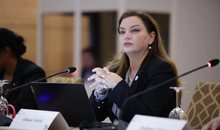

Meet Kozeta Miliku, named one of the top five scientists in Canada
2025-07-01 16:32:12
"Arsonist" arrested for repeatedly setting fires in Vlora (NAME)
2025-07-01 16:29:45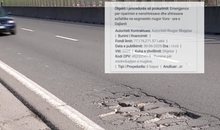

The ecological integrity of the Vjosa River risks remaining on paper
2025-07-01 16:09:40
Heat Headache/ Causes, Symptoms and Measures You Should Take
2025-07-01 16:01:13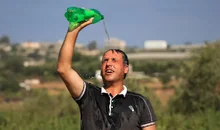
UN: The world must learn to live with heat waves
2025-07-01 15:54:50

Three cars collide in Tirana, one of them catches fire
2025-07-01 15:38:16
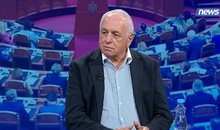
Shehu: Whoever doesn't want Berisha, doesn't want the opposition 'war'!
2025-07-01 15:19:20
Berisha requests the OSCE Assembly: Help my nation vote freely
2025-07-01 15:11:46
Be careful with medications: Some of them can harm your sex life
2025-07-01 15:00:32
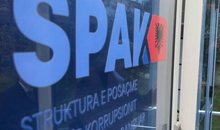
'Golden Bullet'/ Lawyers leave the courtroom, Altin Ndoc's trial postponed again
2025-07-01 14:44:52
EU changes leadership, Kosovo in a number of places
2025-07-01 14:40:01
Should we drink a lot of water? Experts are surprised: You risk hyponatremia
2025-07-01 14:30:20

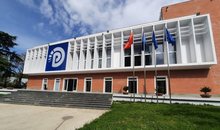

Lëpusha beyond Rama's postcards: A village that is being silently abandoned
2025-07-01 13:41:56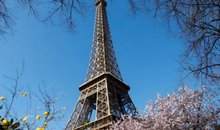
Scorching temperatures in France close the Eiffel Tower
2025-07-01 13:29:35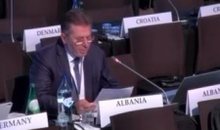
Media: China, Iran and North Korea, a threat to European security
2025-07-01 13:20:12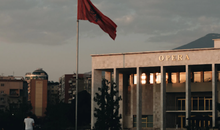
Albania drops in global index: Less calm, more insecure
2025-07-01 13:09:35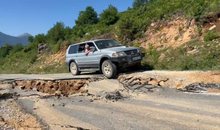
Road collapses, 5 villages in Martanesh risk being isolated
2025-07-01 13:03:04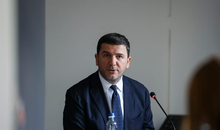
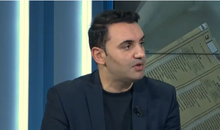
Këlliçi: Opposition action to be decided in September
2025-07-01 12:48:49
Four tips for coping with the heat wave
2025-07-01 12:38:53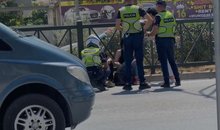
Car hits pedestrian on Transbalkan road
2025-07-01 12:27:09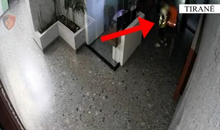
Authors of 9 robberies, Erjon Sopoti and Abdullah Zyberi arrested
2025-07-01 12:15:56

He abused his minor daughter, this is a 36-year-old man in custody in Fier
2025-07-01 11:50:34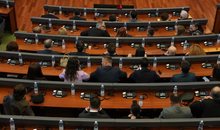
The constitution of the Kosovo Assembly fails for the 40th time
2025-07-01 11:40:08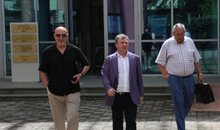



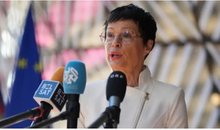
EU confirms support for the Western Balkans
2025-07-01 10:50:45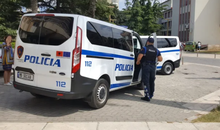
Serious in Fier! Father sexually abuses his minor daughter
2025-07-01 10:32:33
One year since the passing of the colossus of Albanian literature, Ismail Kadare
2025-07-01 10:25:26


They supplied the 'spaçators' with drugs, two young men are arrested in Tirana
2025-07-01 09:54:09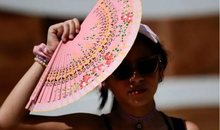
Europe is "scorching", how dangerous are high temperatures?
2025-07-01 09:48:56


Nigel Farage in Albania: but why?
2025-07-01 09:13:12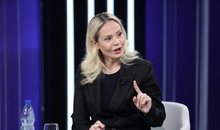
Xama: The "Partizani" dossier is quite weak and without facts!
2025-07-01 09:04:47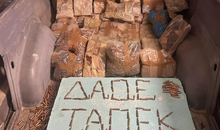
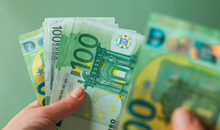
Foreign exchange, the rate at which foreign currencies are sold and bought
2025-07-01 08:35:39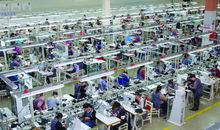
Fabricators again warn of factory closures and job cuts
2025-07-01 08:21:30
Horoscope, what do the stars have in store for you today?
2025-07-01 08:08:59
Scorching hot, temperatures reaching 40°C
2025-07-01 07:57:12
Morning Post/ In 2 lines: What mattered yesterday in Albania
2025-07-01 07:42:59
Recount after May 11, Braho: I had no expectations for massive vote trafficking
2025-06-30 22:54:18

Second hearing on the protected areas law, Zhupa: Unconstitutional and dangerous
2025-06-30 22:18:46



Israel-Iran conflict, Bushati: Albanians should be concerned
2025-06-30 21:32:42

Fuga: Journalism in Albania today in severe crisis
2025-06-30 21:07:11
"There is no room for panic"/ Moore: Serbia does not dare to attack Kosovo!
2025-06-30 20:49:53

Temperatures above 40 degrees, France closes nuclear plants and schools
2025-06-30 20:28:42
Lavrov: NATO is risking self-destruction with new military budget
2025-06-30 20:13:54
Turkey against the "Bektashi state" in Albania: Give up this idea!
2025-06-30 20:03:24

Accused of sexual abuse, producer Diddy awaits court decision
2025-06-30 19:40:44



Kurti and Vučić "face off" tomorrow in Skopje
2025-06-30 18:44:12
Tourism: new season, old problems
2025-06-30 18:27:23


Construction worker dies after falling from scaffolding in Berat
2025-06-30 17:51:44




Almost free housing: East Germany against depopulation
2025-06-30 16:43:06

Hamas says nearly 60 people killed in Gaza as Trump calls for ceasefire
2025-06-30 16:14:15
Drownings on beaches/ Expert Softa: Negligence and incompetence by institutions!
2025-06-30 16:00:03


European ports are overloaded due to Trump tariffs
2025-06-30 15:30:44
The prosecution sends two Korça Municipality officials to trial
2025-06-30 15:19:54

Lezha/ Police impose 3165 administrative measures, handcuff 19 drivers
2025-06-30 14:55:04
Young people leave Albania in search of a more sustainable future
2025-06-30 14:47:52
Record-breaking summer, health threats and preventive measures
2025-06-30 14:36:19


Constitution of the Parliament, Osmani invites political leaders to a meeting
2025-06-30 14:07:54
